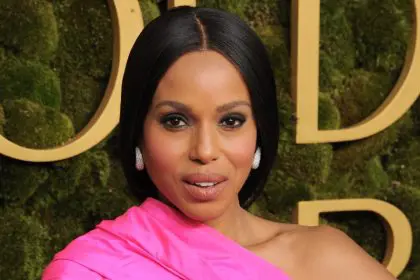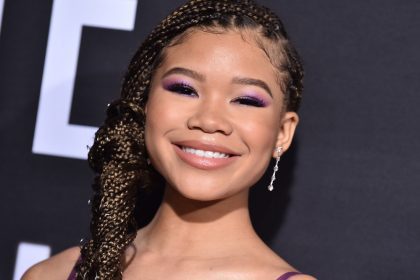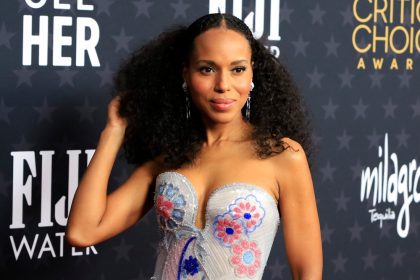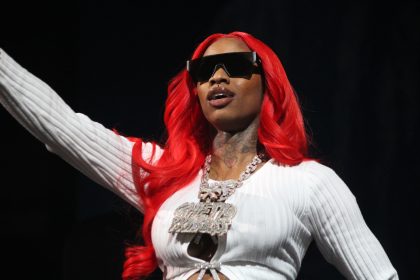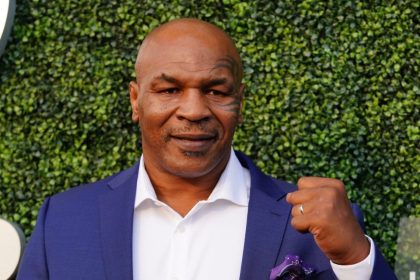ABC’s “Scandal” has become one of America’s most popular dramas. Now in it’s third season, it’s become must-see TV–especially for many African Americans. It is a hit show with an African American female lead (Kerry Washington) and is created by an African American woman (Shonda Rhimes), so the fact that is so popular and well-received has been cheered by many.
But not by all. Not by a longshot.
Since the show’s debut, there has been criticism from many in the African-American community who feel that it’s basic premise; a show about the head of Washington, D.C. crisis management firm who is also secretly having an affair with the president, is nothing more than a modern rehash of the black-woman-as-plaything-to-a-powerful-white-man dynamic. The most common analogy I’ve seen drawn has been to compare Washington’s Olivia Pope character to Sally Hemings, the slave woman who was owned by President Thomas Jefferson and whom he is believed to have fathered at least six children. Because Pope is also having sex with a married, white president, those critics feel that she is the 2013 embodiment of Hemmings.
But that analogy is ignoring some fairly obvious truths.
Most notably, Sally Hemings was a slave. The most troublesome aspect of the way the Hemings/Jefferson story is often told is that it seems to be framed as a boss having a romantic affair with his employee. But, again–Sally Hemings was a slave. She was a subjugated human being who was viewed as property. She and Thomas Jefferson were not peers in the eyes of the law and he could do with her what he wanted. She had no free will.
The fact that that gets glossed over and we compare a professional, highly-intelligent woman who is making a choice of her own–an irresponsible, reckless choice, but still a choice–to a slave who was forced to be a slaveowner’s plaything speaks volumes about how we view slavery and women who were forced to become concubines to men who viewed them as their possessions.
But it is also problematic for African American audiences to reduce a character like Olivia Pope and a show like ‘Scandal’ to just it’s basic premise. A premise that is an intriguing and engaging basis for a series. For black people in America, our portrayal has always been a source of concern and frustration. But we also have to be aware that every bit of black art and entertainment isn’t definitive; and we shouldn’t be preoccupied with changing the minds of other people who have already shown themselves to be racist.
Most of the popular shows on television today feature morally-questionable characters as leads. After the success and acclaim of HBO’s “The Sopranos,” more dramas have embraced anti-heroes. From Walter White of “Breaking Bad” to Don Draper of “Mad Men” and the dark “Dexter,” we have shown that we have the wherewithal to grasp the nuances of these characters who are, on the surface, reprehensible people. So while we gleefully watch white shows about meth dealers and womanizers and serial killers every week, we’re only supposed to support black shows that feature impeccably pristine “portrayals” of black people? I don’t think so.
Yet there are many people that pine over the demise of “The Cosby Show,” with its picture-perfect depiction of a photogenic, upper middle class black family and bemoan that a character like Olivia Pope is now so popular.
The Huxtable era is over. Not that “The Cosby Show” wasn’t landmark television. It is a beloved and important show. But it was a half hour family-oriented sitcom. If “The Cosby Show” debuted in 2013, it would likely be on TeenNick or the Disney Channel. It probably wouldn’t be the #1 show in America today. American television is dominated by hour-long dramas with hard-hitting storylines now. Not fluffy TGIF entertainment. Cliff and Clair were enjoyable to watch, but they were all surface. We never saw what Cliff’s fears or frustrations were. We never learned if Clair was ever overwhelmed or flawed. They were perfect. But they weren’t layered.
The best characters on TV today are imperfect. Their flaws are what make them compelling. So maybe we should stop treating those flaws as “bad portrayals” of black people and recognize that these characters are nuanced. We can be nuanced. And we can stop comparing “The Cosby Show” to “Scandal.” After all, you wouldn’t compare “Shameless” to “Growing Pains.”
Would you?



